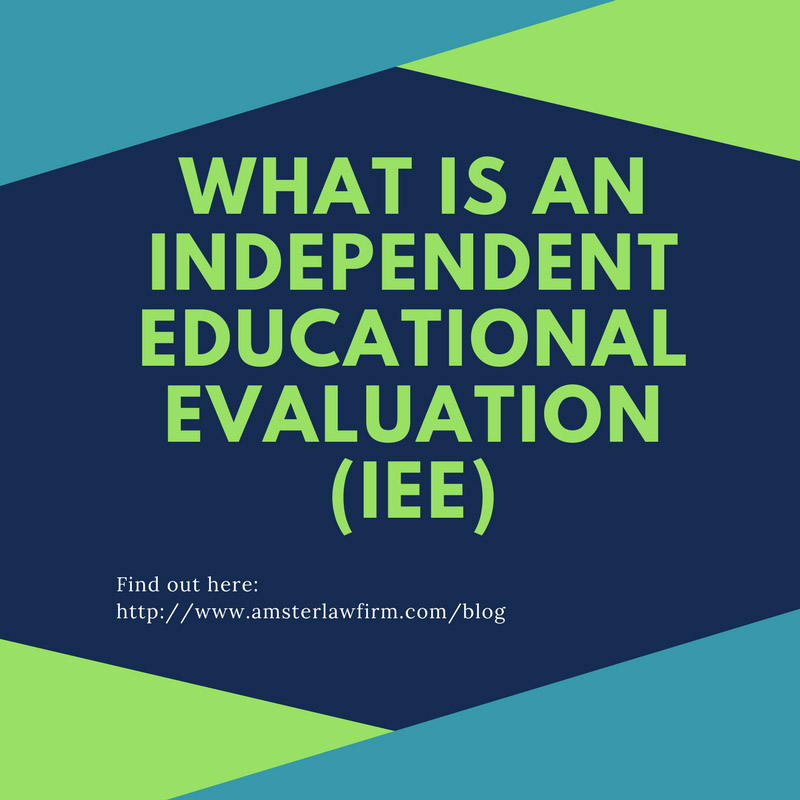Why would you need an Independent Educational Evaluation (IEE)
Are you dissatisfied with your child’s education assessment? Is the District denying your child eligibility or a necessary service based on the recommendations of a poorly-done assessment? Did the District fail to evaluate your child in an area of need? Have you asked for an independent assessment of your child and been ignored by the School District or just flat out told “No!”?
If you answered yes to any of these questions, then you might need an IEE.
How to request an IEE
Either at an IEP meeting or in writing (or both) you should specifically request an IEE. You should explain why you disagree with the District’s assessment.
Fund or File
When the District receives your request for an IEE, the District has only two options: “Fund or File.” The District must either pay for the IEE (Fund) or file for Due Process (File), claiming that the District’s assessment is “appropriate.” If the District decides to file for Due Process, and the hearing officer determines that the District’s evaluation is appropriate, you have a right to the independent evaluation, but not at public expense (34 C.F.R. Sec. 300.502; Cal. Ed. Code Sec. 56329(b)).
The district may ask you to identify specific areas of disagreement with its evaluation, but this cannot be used to delay the district’s response to your request (34 C.F.R. 502(b); Cal. Ed. Code Secs. 56329(b) & (c)).
Without Unnecessary Delay
Under federal regulations, District must respond to your request for an IEE “without unnecessary delay” (34 C.F.R. Sec. 300.502(b)(2)). “Necessary Delay” is a question of fact under the circumstances. In one California case, “unnecessary delay” has been found to be more than ninety days have elapsed after the request and the district did not respond at all. (Pajaro Valley Unified Sch. Dist. v. J.S., 47 IDELR 12, 50 (N.D. Cal. 2006). On the other hand, the courts have found that there was not unnecessary delay when the parties are negotiating regarding the assessor for the IEE and some time has elapsed.
Who conducts the IEE
Regardless of whether the District agrees to provide you with an IEE or opts to file for Due Process, the District needs to provide you with “information about where an independent educational evaluation may be obtained, and the agency criteria applicable for independent educational evaluations.”
This information should include a list of qualified assessors in your area, as well as pricing guidelines and other standards the District has adopted.
You are not obligated to use the assessors listed by the District. However, you should use the District’s pricing guidelines and other standards.
Types of IEE Assessments
You can request any type of evaluation that the District would perform to assess special education eligibility or the educational needs of your child in a suspected area of disability. Some evaluations are: psycho-educational assessments, assistive technology assessments, speech assessments, occupational therapy assessments and functional analysis assessments.
Observations by Independent Evaluator
If the District conducted the contested assessment using observation, then the Independent Evaluation can too. This includes the current educational placement and setting and in any new placement and setting proposed by the District.
If you want to discuss an IEE or if the District has ignored your IEE request, contact me to discuss your options.


Add Comment